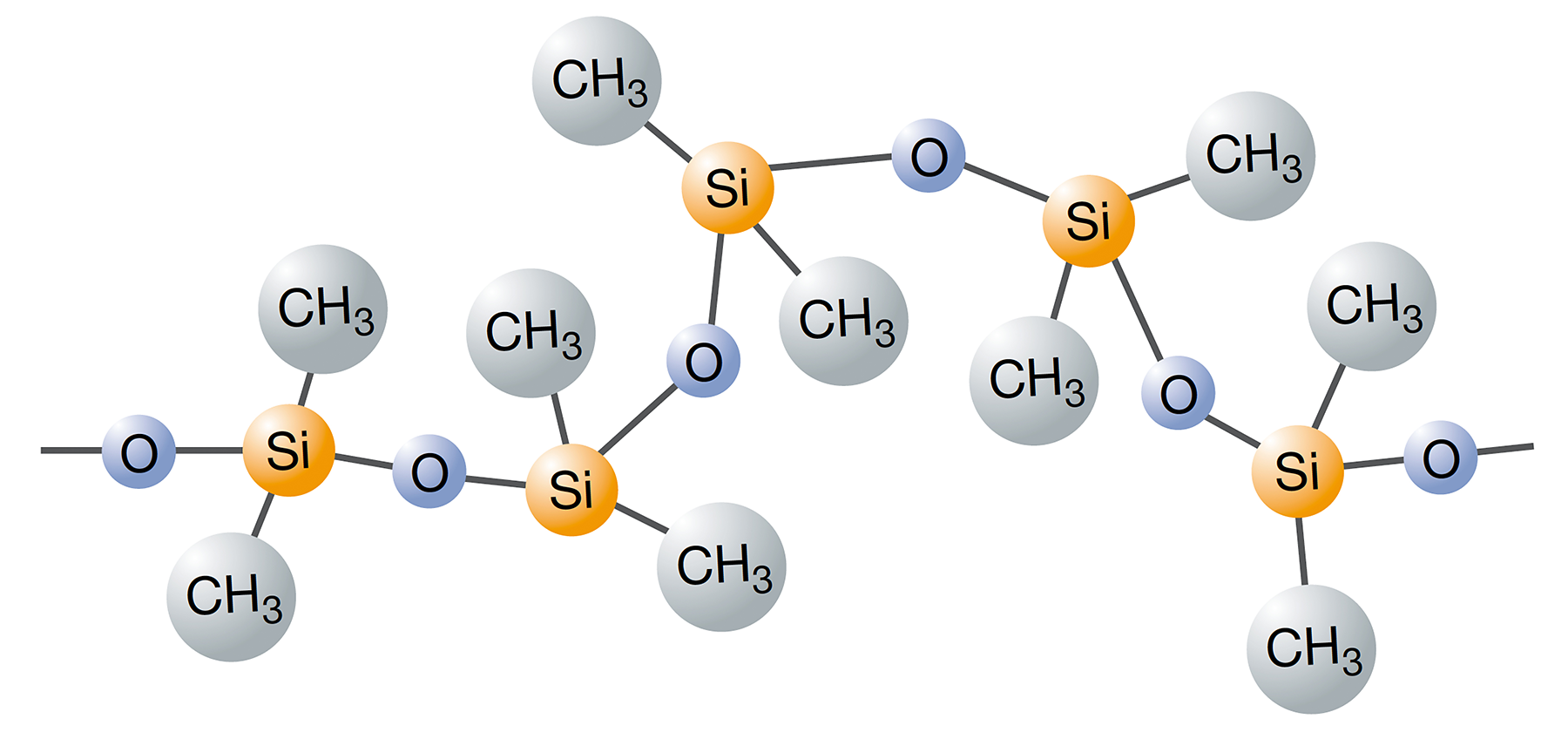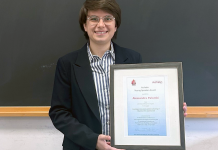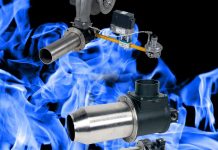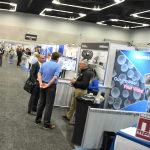Heat transfer fluids can be a vital part of industrial applications where systems need to heat up or cool down during a production process. These fluids are often necessary to ensure the efficient transfer of heat.
Not only can this efficient transfer affect the bottom line, but using heat transfer fluids that will have a minimal impact on the environment is also becoming an integral part of industrial heat-treat applications.
Helisol range of products
Wacker Chemical Corporation has been committed to producing efficient, economical, and environmentally friendly fluids used in a multitude of industries for more than a century.
“Wacker is highly focused on sustainability, reflected in developing the Helisol® range of heat transfer fluids (HTF),” said Raj Prasad, Marketing Manager Chemical Industries at Wacker Chemical Corporation. “Helisol is not only produced using bio-methanol, but the product itself is completely recyclable even after several decades in various applications such as CSP (concentrated solar power) plants that use solar energy for industrial heating.”
Wacker does not just stand ready to offer innovative fluid solutions, but the company is also working to offer those fluids with a commitment to a greener way of producing them, according to Prasad.
“Wacker’s philosophy is based on a strong ESG with a strong commitment to making the energy transition and reversal of climate change a success,” he said. “Wacker has joined the Race to Zero and the UN’s carbon neutrality initiative with a new ambitious target to achieve net zero in 2045. Wacker also practices social responsibility, supporting education, transparent dialogue with neighbors, encouraging employees to support each other and work toward the common good, and supports the internationally acknowledged 3R principle (Replace-Reduce-Refine) in the context of animal experiments.”

PFAS-free
To that end, Wacker’s Helisol range of heat transfer fluids strongly reflects this philosophy and is one of the leading PFAS-free products for the heat transfer industry, according to Prasad.
“Helisol has a very high thermal stability and can be used at temperatures as high as 425°C (even higher in some applications) starting from as low as minus-40°C,” he said. “Helisol also offers a longer lifetime and no fouling of equipment, meaning fewer changes and, therefore, lower operating costs than organic HTFs. Helisol can be used for industrial process heating and cooling in various industries, such as plastics, chemical processing, oil and gas, and food and beverage — to name a few.”
Some specific applications for those industries include:
• Within the chemical and petrochemical industry, Helisol is used for chemical processing, distillation, heating, and drying. It also can be used in manufacturing, refining, transporting, and recycling of petrochemical products.
• For the plastic/textile industry, it can be used for polycondensation and polymerization, as well as for synthetic fiber formulation and processing.
• For energy generation and conversion, heat transfer fluids are used for thermal energy transfer and waste heat recovery.
• Within the food and pharmaceutical industry, Wacker’s product is necessary for precise temperature control and for heating and cooling applications.
• As Prasad mentioned earlier, Helisol is also a component of concentrated solar thermal energy (CST). For example, a CST plant in Antwerp using Helisol as a heat transfer oil has replaced its annual gas consumption by 500 MWh.

But what exactly makes Wacker’s heat transfer fluids unique?
Helisol heat transfer fluids are polydimethylsiloxanes, which are a mixture of linear siloxane compounds. Due to their chemical structure, they undergo so-called rearrangement reactions (equilibration) of their silicone-oxygen bonds when operated at temperatures above 220°C. However, this rearrangement reaction is not a degradation reaction and does not affect the lifetime of the fluid.
Because of this rearrangement reaction, some physical properties of the fluids will change throughout operation. Once the equilibrium fluid composition is reached, the physical properties remain stable.
These unique properties result in Helisol heat transfer fluids not being classified as hazardous.
Sustainability goals
Being able to offer products that strive to be as environmentally friendly as possible is a goal that is shared by Dr. Christian Hartel, Wacker’s president and CEO. This is a goal that he emphasizes will only continue to grow stronger within the company’s product line.
“As one of the world’s leading manufacturers of specialty chemicals and polysilicon, we play a major role in the energy transition and in reducing the impact of climate change,” Dr.Hartel said. “Products that enable our customers to bring climate-friendly and resource-efficient products onto the market already make up about two-thirds of our portfolio. In the coming years, we intend to significantly expand our portfolio of particularly sustainable products and make considerable efforts to de-fossilize our production. We consider that this holds significant potential for our business success.”
To continue that streak of success, Prasad said Wacker is driven by in-depth research.
“In partnership with our customers, we identify trends that promise growth and ensure long-term market success and competitiveness,” he said. “With a mission to improve human health and safety and protect the environment, we develop scientific solutions for the challenges facing our customers and society. As an innovation-driven organization, we are continuously thinking about tomorrow today and turning good ideas into ready-for-market products.”

Multiple achievements
Wacker’s constant goal of striving for excellence has resulted in many achievements over the company’s long history, according to Prasad. In 2016, Wacker invested about $2.5 billion in commissioning a polysilicon asset in Charleston, Tennessee. And in 2021, Wacker acquired a 60 percent stake in specialty silane manufacturer SICO Performance Co. Ltd. in Jining, China.
“Wacker opened our Innovation Center & Regional Headquarters in Ann Arbor, Michigan, in April 2022,” he said. “It serves as the headquarters of Wacker’s subsidiary, Wacker Chemical Corporation, covering the North and Central American region and providing state-of-the-art lab space for our Biosolutions and Silicones regional divisions’ applications and research. The Innovation Center & Regional Headquarters building is the first of Wacker’s sites to obtain the LEED certification for implementing sustainability practices and materials in the building design, construction, and operations. Less than 5 percent of businesses in Michigan have achieved this certification.”
Circling back to Wacker’s sustainability initiatives, Prasad said Wacker is also one of the first companies to have its Net Zero Target for 2045 certified by the Sustainability Science-Based Target Initiative (SBTi) in 2023.
A century of business
Those serve as just a few examples of Wacker’s achievements over its long history, which began in 1914, when, at 68 years old, Dr. Alexander Wacker established Elektrizitats AG as a leading business in the electricity industry, according to Prasad.
“The great visionary that he was, he wanted to build an industrial plant for applications ranging from electrochemicals to organic chemistry,” he said. “The now famous Burghausen plant in upper Bavaria was constructed in 1916, with the first products being acetaldehyde and acetic acid.”
Demands during WWI led to the production of acetone, which was the starting point that put Wacker on a trajectory to becoming an international chemical company, according to Prasad. Today, Wacker’s portfolio includes more than 3,200 products.
Looking to what’s next
As Wacker continues that trajectory into the future, Prasad said that the world’s energy transition journey will be an area that the company will lend its considerable expertise in.
“One of the most significant changes is expected to be in the area of energy transition — from fossil fuel and nuclear-based to renewable sources, including solar and wind energy,” he said. “The chemical sector is one of the most energy-intensive industries, and Wacker is fully aware of the responsibility it entails. In Germany, the transition to renewable energy sources is underway and is set to account for 80 percent of the total electricity mix by 2030.”
In that vein, Wacker aims to cut greenhouse gas emissions in half and reduce energy consumption by 15 percent by 2030, according to Prasad.
“Whether wind power or solar energy, Wacker’s products help harvest renewable energy,” he said. “Perhaps the best-known example is our hyper-pure polysilicon, the most fundamental raw material for photovoltaics. Wacker is the only company in Europe to produce such hyper-pure polysilicon for photovoltaics.”
MORE INFO www.wacker.com





































